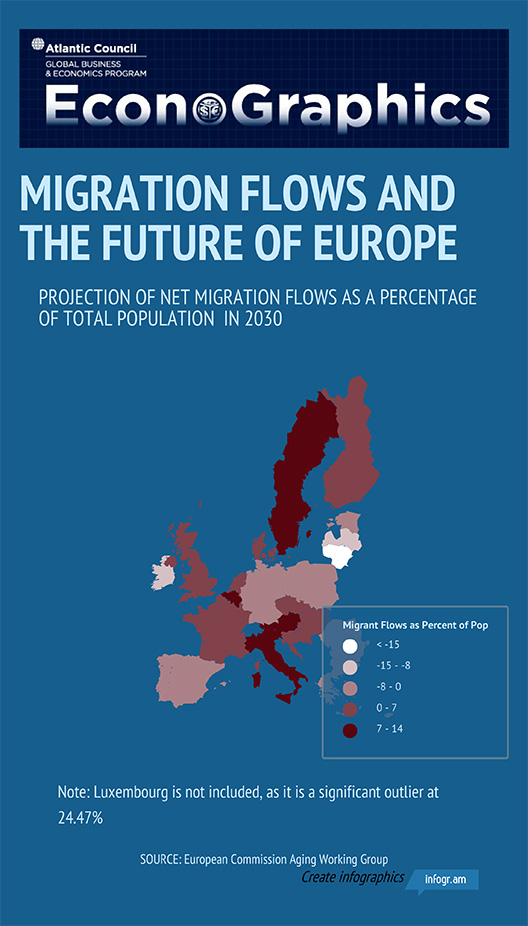As Europe confronts the migrant crisis, much of the current coverage remains fixed on short run trends, but in order to have a comprehensive perspective it is necessary to project these trends into the future. In spite of commonly held concerns of migrants’ effect on European identity, many of these nations’ birthrates and outflows of migrants will actually be higher than their intake of migrants. Negative flows of migrants could further weaken pension plans, as aging European populations struggle to balance social welfare models with demographic realities.

On the other hand, those sixteen European countries with larger inflows of migrants must be mindful of their economic ramifications, and manage them correctly in order to reap the possible benefits. Just as net outflows of migrants stress social nets for the elderly, inflows could have the opposite effect by causing positive demographic pressure.
In order for European economies to exploit this pressure, migrants must be effectively adapted to European business systems. This means updating migrant skills to be compatible with European business models.
The way Europe handles the migrant crisis will significantly impact Europe’s demographic and economic future.
For more information please consult the European Commission’s 2015 Ageing Report.